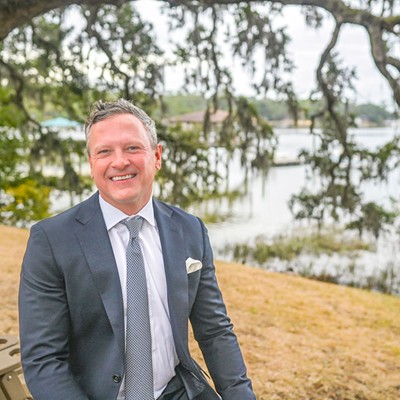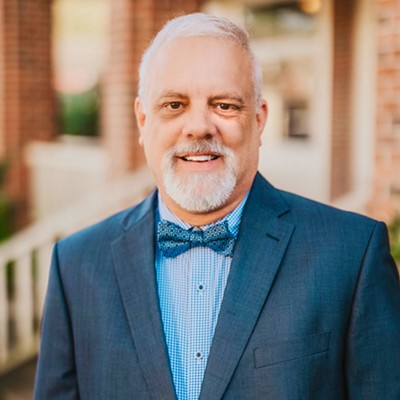John Barrow is no stranger to election challenges for his Congressional seat, and the incumbent Democrat has survived them all relatively unscathed. This is a tough year for incumbents, but while Barrow isn’t taking his position for granted, he is confident that his record as a pragmatic politician rather than a partisan is clear for voters. We caught up with Barrow last week to talk more.
What do you see as the most important issues facing the district right now in the next couple years?
John Barrow: Jobs and the economy, that’s the most important issue by far. It’s like an old farmer buddy of mine put it: If you’re a farmer and you’ve got enough water, you’ve got all the problems that a farmer’s got — problems with creditors, feed, equipment suppliers, weather. But if you don’t have enough water, you’ve got just one great big problem. It’s not like all those other problems go away, they just take a backseat.
In this country, that’s true with our economy. We’re not going to get the government’s finances on track without the economy coming back. We’re not gonna deal with a lot of issues that matter to folks unless we get our economy back on track.
The stimulus has had some time to work. There’ve been successes and failures. What sort of solutions do you see for the economy?
John Barrow: There are limits to how much the government can respond to a collapse in private sector demand. There’s no limit to the supply of merchants ready to do business, it’s just the credit freeze. I’ve consistently supported all of the business tax cuts that have been offered to lower the cost of hiring employees, payroll tax holidays, to give folks credits for investing in equipment. I support measures to make things that businesses use less expensive, but I think we need to go beyond that.
We need to realize that a balanced program of investing in the economy would not only incentivize businesses to buy stuff, but incentivize businesses to hire people. Unemployment insurance is essential if you’re out of work, but a job that’s gone away is a job that ain’t coming back. You should be able to train for jobs that are around the corner or that are coming to take the place of the ones that you lost. The federal government does a very small bit of that, but it waits until you’ve exhausted all your unemployment insurance.
I introduced legislation in Congress that would revise our Workforce Re–Investment Act — that’s our primary ongoing program for investing in employment – to put job training at the front of the line rather than the back of the line when it comes to helping folks.
What would you say has been the hallmark of your tenure in office?
John Barrow: The first thing I hear is “we’ve never had a congressman who worked as hard as hard you do to spend time with us and visit with us.” I hear that everywhere I go, and since we’ve had some hands–on congressmen in my part of the state, I take that as a compliment.
I vote the interests of my district and not one party or the other. I think that’s what’s got people frustrated with Washington these days, is seeing how blind partisanship seems to have taken over and each of the two teams up there seems to be more interested in scoring points off the other team than they are in scoring points for the folks back home.
In that realm, the healthcare reform vote upset some of the Democratic base here. Do you feel you’ve won back their trust, and if so, how?
John Barrow: Folks have a right to disagree over the best approach toward solving the issues we care about, but the things that define us are the things that we care about. If we care about the fact that so many people are uninsured, and uninsured people are adding to the costs that are incurred by folks who are insured, then we’ve got to figure out some way of dealing with that problem. They’re not just a problem to themselves, they’re a cost to the rest of us.
I personally think that a better way to deal with that problem, rather than tax everybody to extend benefits, is programs like PeachCare that we have in Georgia, where they’re picking up where Medicaid leaves off. That’s the sort of thing that more folks can agree on.
If some predictions ring true and Democrats lose control of the House, are you concerned things could grind to a halt while we have a Republican House and a Democratic administration?
John Barrow: While I think the partisanship of the rhetoric in Washington is going to go up, I think our ability to do things is going to slow down some and that’s probably a good thing if you’re doing things that aren’t in the interest of folks back home. Instead of focusing on the economy, we’ve had people who want to run off and do all kinds of things besides taking care of the economy.
I think we’re gonna find that the folks who get replaced are going to be more of the moderate centrists because they are the ones within reach of the rising tide of anger out there that’s superimposed on top of the concerns that most voters have, which is simply getting our politics back in the middle again.
The rhetoric may go up, but the volume of controversial or divisive issues will probably go down. It may be something of a wash. There’s still going to be an underrepresentation of the middle of the road point of view in this country. If there’s any hope for us, it’s going to be even though our numbers may go down, our leverage may go up. It remains to be seen.
There’s some sentiment that we haven’t seen much of you around Savannah during the campaign season. What have you been up to?
John Barrow: First off, a large part of the campaign season, between the primary and now, some of it has been on the job in Washington. During the primary, Congress is in session. If you check around, you’ll find I’ve been all over the district visiting with folks. The press releases you get aren’t designed to give you a daily update about where I am, but it’s been a full calendar.
Why you and not your opponent?
John Barrow: I’ll tell you what folks tell me: They’ve never had a congressman work as hard to be in the community and be as present and listen to their concerns. I take that as the strongest endorsement you can get. I’ve been endorsed by a diverse group of organizations which watch the politics of the country very closely. The AFL–CIO, the US Chamber of Commerce, The National Federation of Independent Businesses have endorsed me. The National Association of Manufacturers. So has the NRA.
The endorsement that matters the most to me is the one I get when I go to a town hall meeting in some town no congressman has ever been to before except at election time and I’ve made my fourth or fifth visit in a year. I get folks coming up to me, telling me thank you for coming. That’s the thing that I think is important.
To comment, email us at [email protected]



























